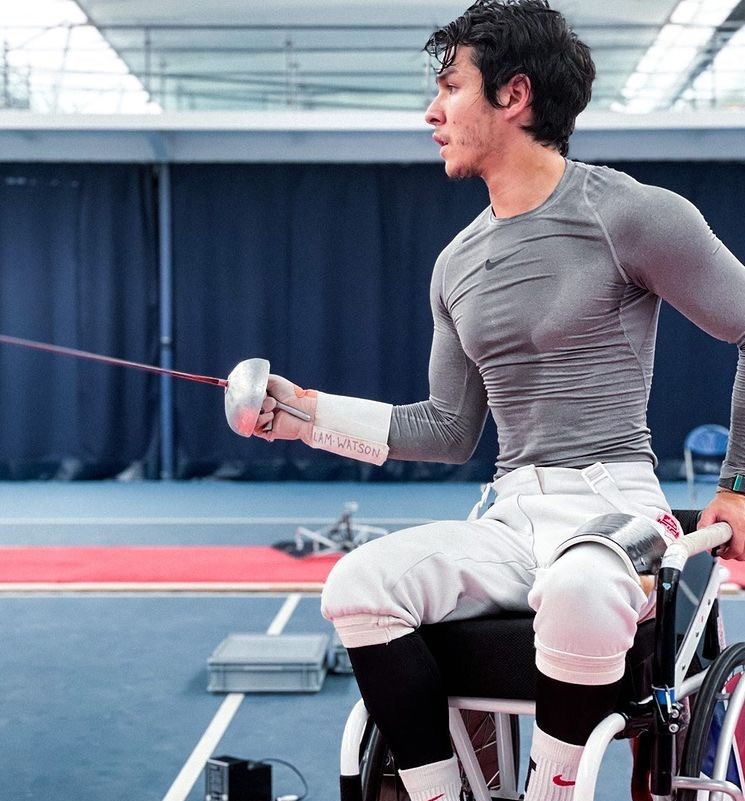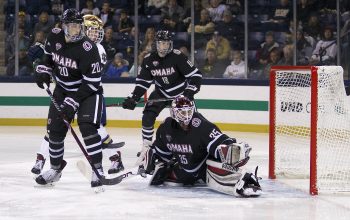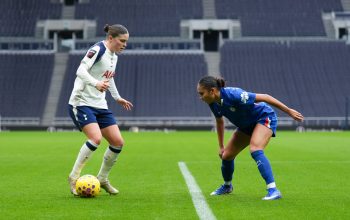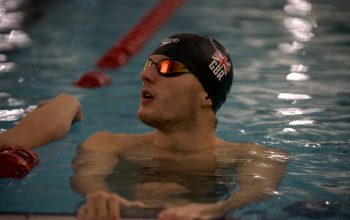British Paralympic medalist and former Kingston University student Oliver Lam-Watson has criticised the continued lack of exposure of disabled athletes in the UK.
Lam-Watson, who won a silver and bronze medal in wheelchair fencing at Tokyo 2020, said that the disparity of coverage was based on a lack of respect and understanding of athletes with a disability.
He said: “There is a clear lack of exposure of disabled athletes compared to able bodied athletes. TV stations don’t broadcast us as much, and there is very little support towards us in terms of funding.”
Lam-Watson, who took part in Tokyo despite only taking up wheelchair fencing four years ago, said there was also a lack of appreciation of the hard work and sacrifice it takes to be an athlete in the Paralympics.
He said: “We’re normal people who happen to have a disability. That’s what a lot of people don’t consider, not all disabled athletes are cute and cuddly just because we’re not able bodied.”
Lam-Watson graduated Kingston University after studying architecture at undergraduate and postgraduate level.
Despite having a large following on other social media platforms and being a successful athlete, he has not been awarded a verification tick on Instagram. He said being rejected was disappointing.
He said: “I’ve applied to have a tick ten times, and I have been rejected ten times. It does annoy me slightly, because it would be really cool to have one and there are plenty of influencers who have one despite not achieving as much.
“Twitter and TikTok have verified me, which is nice, but I guess Instagram don’t feel the same way.”
Lam-Watson’s blue tick rejection isn’t the first time a Paralympic athlete has been rejected by the service. Earlier this year, six-times Paralympic gold medallist David Weir CBE had his request rejected for a blue tick, as according to Instagram, he didn’t meet their requirements. He has since been awarded one.
Instagram says that to become verified, an account would need to be authentic, unique, complete (the account must be public and have a profile photo), and must represent a well-known, highly-searched-for person.
The last Paralympics were the most viewed games of all time, with an estimated 4.25 billion people watching around the world.
However, the lack of coverage for disabled athletes in the media outside of the Paralympics is something that Lam-Watson believes needs to change. Channel 4 hosts the Paralympics, but it is very rare that other disabled sporting events are covered.
He said it is difficult to take when Paralympians’ achievements are not recognised on a wider scale.
He said: “It’s like they’re saying that our achievements are good, but not that good because we’re not able bodied athletes.
“In particular publications, we would be an afterthought on the last few pages, whilst able bodied fencers who didn’t achieve as much as we did, are front page news.”
There is some optimism, however, that the playing field will soon be made more equal. Viv Mills, a former Women’s British sabre champion and the current secretary of the British disabled fencing association, says that the recent success of British disabled fencers has pulled in some notable admirers.
She said: “I was at the homecoming party at Wembley Arena, and I can honestly say that all the stops were pulled out for that.
“The Prime Minister, Boris Johnson, attended and made a speech in which he said that the contribution of the Paralympic athletes had been better than their Olympic counterparts, and that additional funding would be given specifically to the Paralympic athletes to reflect the significant contribution they had made to the health and wellbeing of the nation.”





